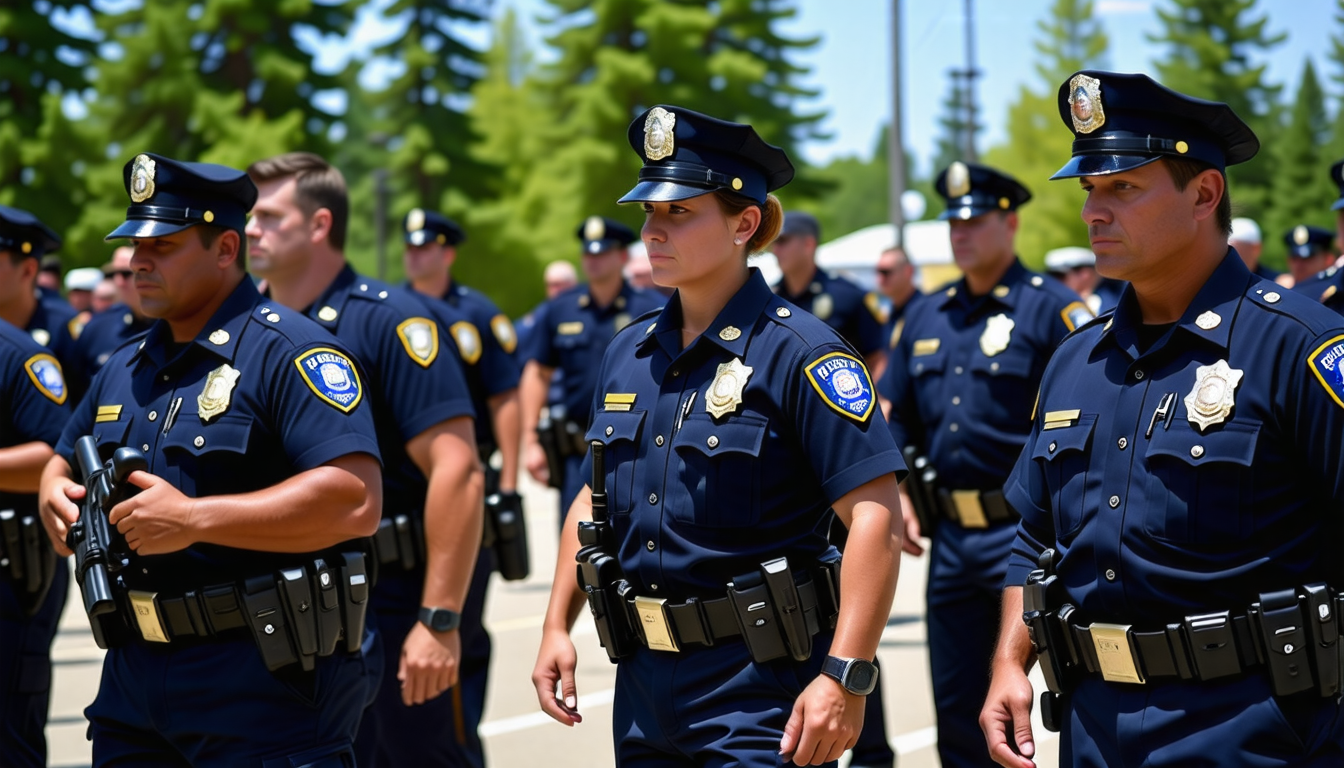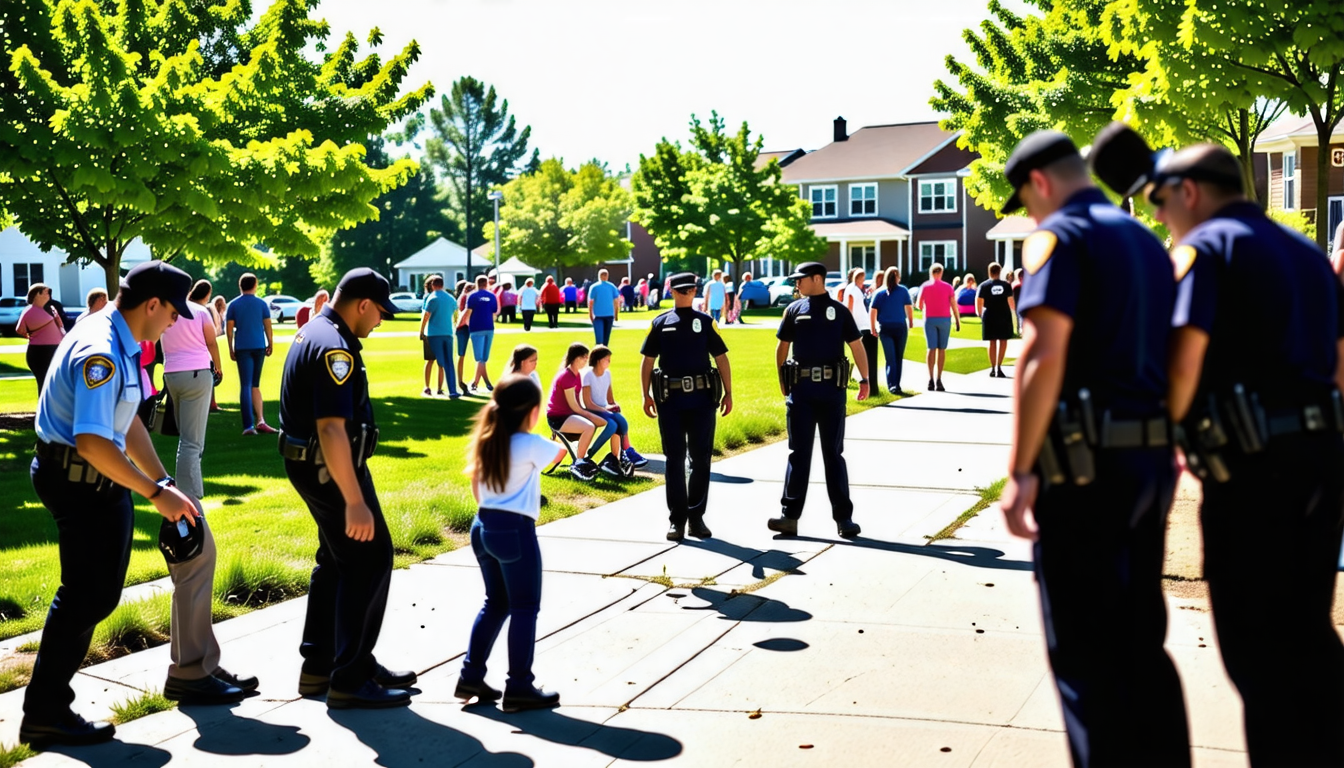|
IN BRIEF
|
In the world of law enforcement, staying ahead in skills and knowledge is crucial for effective policing. In Canada, police officers undergo rigorous and specialized training that not only prepares them physically but also mentally for the complexities of their roles. With a wide range of programs offered, from cadet training at esteemed institutions like the RCMP Academy in Regina to the advanced courses at the Canadian Police College, future officers are equipped with the essential tools for success. The training includes vital courses on criminal justice, investigative techniques, and conflict resolution, all aimed at fostering competent, compassionate, and resilient officers. The journey is as challenging as it is rewarding, ensuring that those who wear the badge are truly prepared to serve and protect their communities.
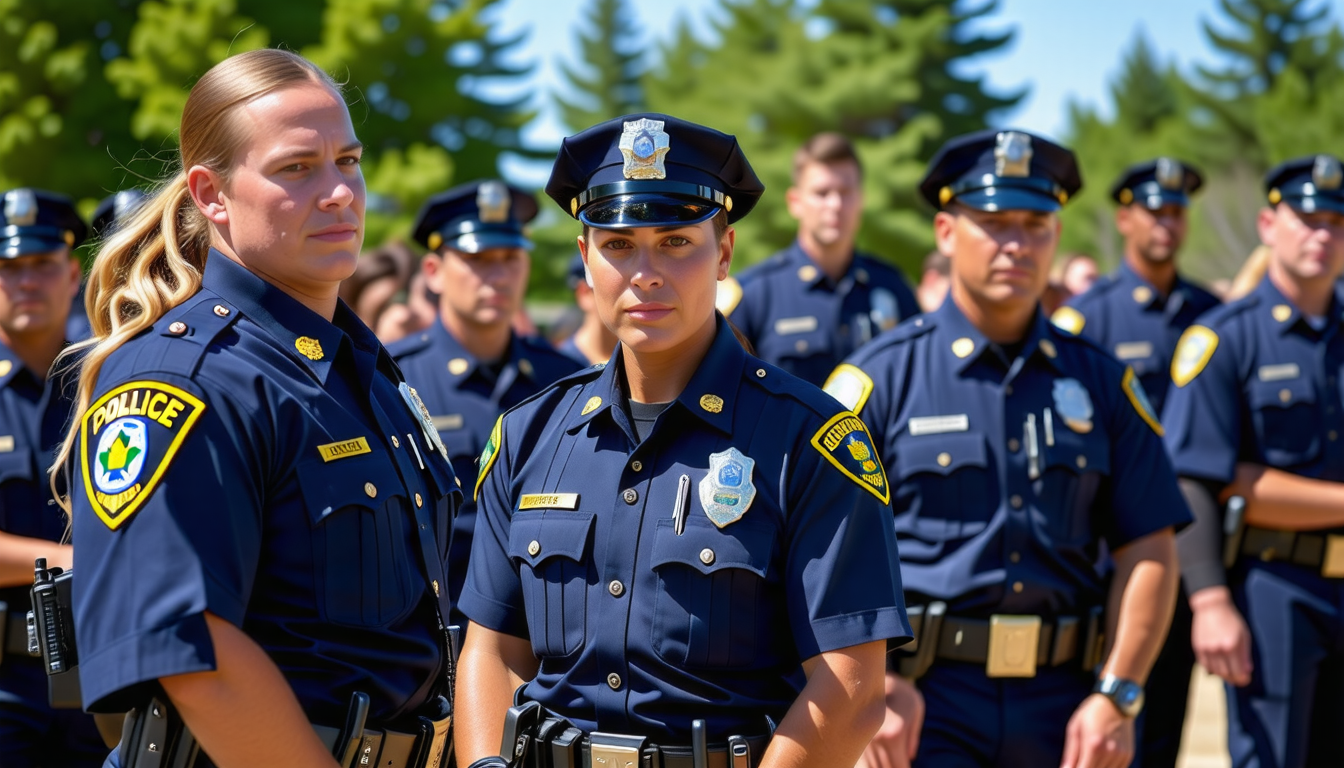
The training of Canadian police officers is structured and comprehensive, preparing them for the diverse realities they will face while serving their communities. This multifaceted process includes various stages, from initial recruitment to specialized training modules that address different aspects of law enforcement. Understanding these training components reveals the diligence and rigor necessary to uphold law and order in society.
Conclusion of Training Phases
The multi-layered training process undertaken by Canadian police officers plays a vital role in ensuring public safety and effective law enforcement. By combining physical skills, theoretical knowledge, specialized training, and ongoing education, officers emerge as well-rounded individuals prepared to face the challenges of their profession.
For further insight into the specific criteria and training paths, resources such as how to become a police officer in Canada can provide detailed overviews corresponding to various law enforcement agencies across the country.
Basic Training Programs
After selection, recruits enter a foundational training program, often hosted at specialized institutions like the Royal Canadian Mounted Police (RCMP) Academy or regional police colleges. This basic training usually lasts several months and encompasses theoretical and hands-on training formats. For example, the RCMP training consists of approximately 26 weeks at their Academy in Regina, Saskatchewan, where cadets learn essential skills in a structured environment.
Physical Fitness Training
A significant aspect of basic training involves physical fitness. Candidates engage in a regimen designed to build endurance, strength, and agility, which are crucial for police duties. The Police PREP test is administered during this phase, assessing candidates on their physical capabilities. Those who do not meet the required standards may be given additional opportunities or sidelined until further training can enhance their fitness levels.
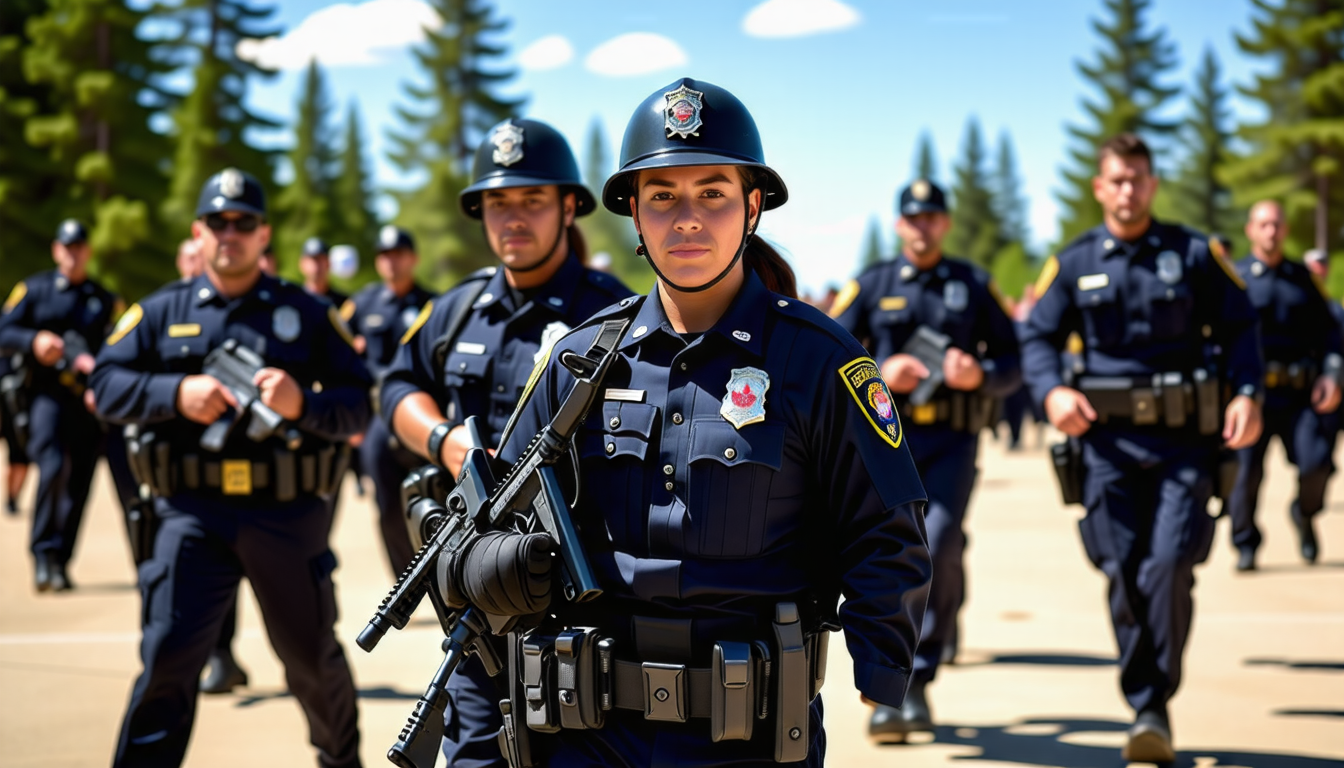
In Canada, police training is essential to ensure that officers are prepared to handle various situations they may encounter in the field. The duration and type of training can vary significantly among different law enforcement agencies. Typically, a police recruit can expect to undergo extensive training programs lasting from 26 weeks, such as at the RCMP Academy in Regina, Saskatchewan, to longer periods for specialized roles.
The training regimen includes physical conditioning, crisis management, and criminal law. For instance, the Edmonton Police Service is known for having one of the best training programs in the country, ensuring all recruits meet the same high standards regardless of their background. Recruits also partake in the Police PREP test, a mandatory physical assessment, to guarantee their fitness levels are adequate for police duties.
Moreover, agencies like the Canadian Police College provide advanced training to enhance the competence of officers further. This rigorous preparation is vital, considering that police officers face a wide array of challenges in maintaining public safety and upholding the law across diverse communities.
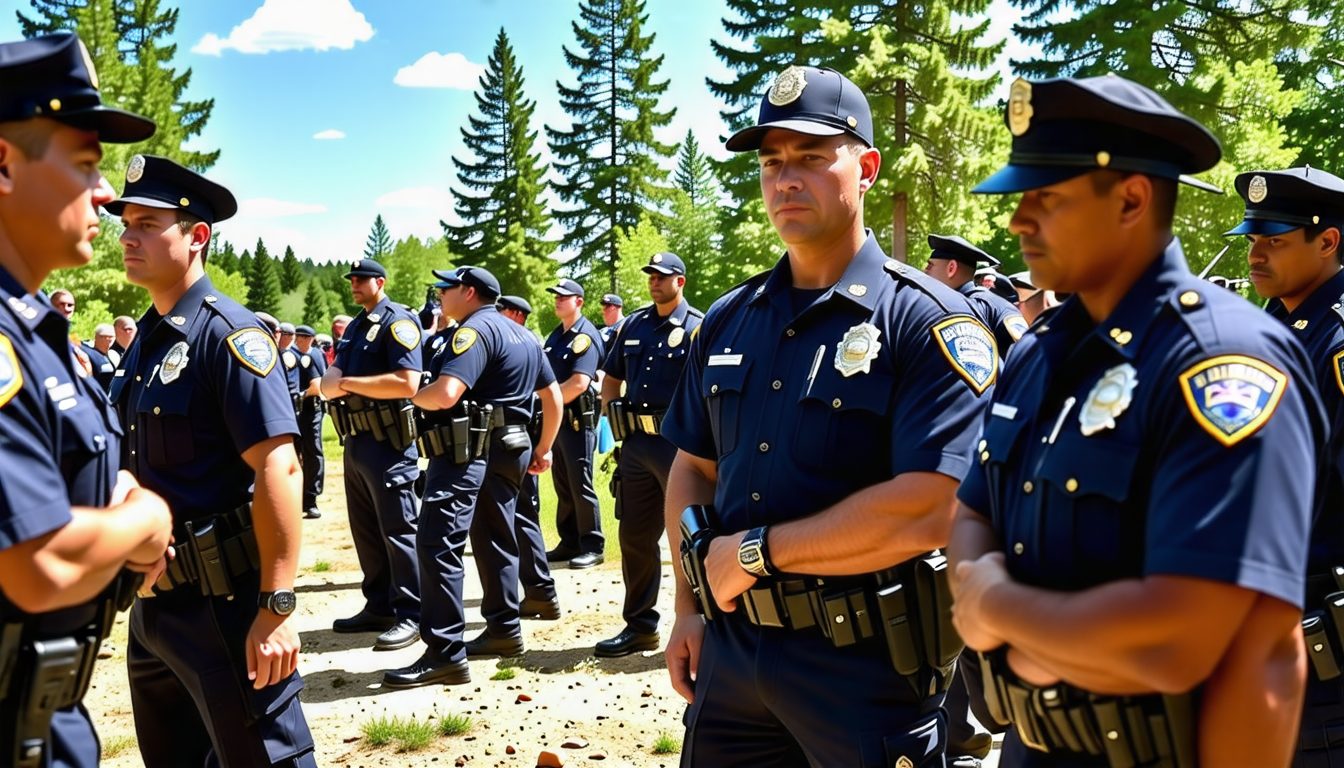
The path to becoming a police officer in Canada necessitates comprehensive and rigorous training. This training typically begins with a foundational phase, where candidates must fulfill both physical and mental assessments to ensure they meet the demanding requirements. Enrolment in training programs, like the esteemed RCMP Academy in Regina or the Ontario Police College, equips recruits with essential skills spanning from investigative techniques to crisis management. The duration and content of these programs vary, emphasizing the intricacies of law enforcement within different Canadian jurisdictions. Each candidate undergoes specialized courses tailored to regional needs, culminating in a robust training experience designed to develop competent and capable officers ready to serve and protect their communities.
FAQ
R: Canadian police officers undergo an extensive training program that prepares them for the realities of law enforcement. This typically includes a combination of classroom instruction and practical training focusing on criminal justice, public safety, investigative techniques, and physical fitness.
How long is the training for police officers in Canada?
R: The duration of police training varies by agency. For instance, cadet training at the RCMP Academy in Regina lasts approximately 26 weeks, while other municipal police services may offer different lengths and types of training programs.
Are there different training programs available for specific roles in policing?
R: Yes, there are various training programs tailored to specific roles within law enforcement. These can range from investigative training for specialized units to courses in criminal justice and security management for broader public policing roles.
Is a degree necessary to become a police officer in Canada?
R: While a degree is not strictly necessary, many candidates possess qualifications in areas such as social science or criminal justice. Having relevant education can enhance an applicant’s prospects during the recruitment process.
Do international candidates have access to police officer training in Canada?
R: Yes, international candidates can apply to join Canadian police services, and some agencies offer training programs tailored for foreign applicants, ensuring they meet the local standards and requirements for policing.
